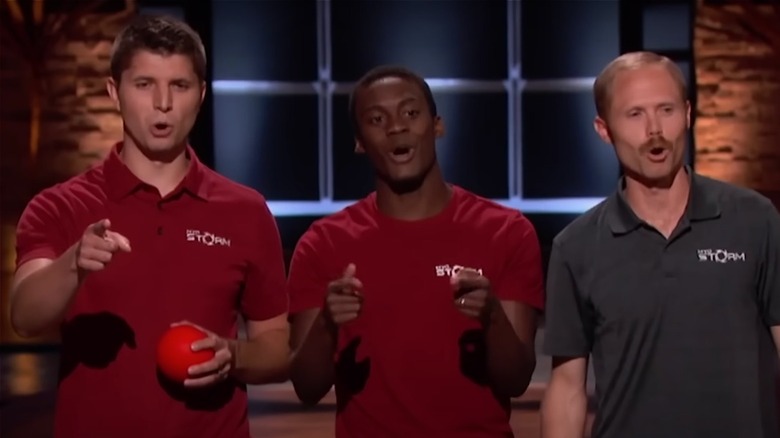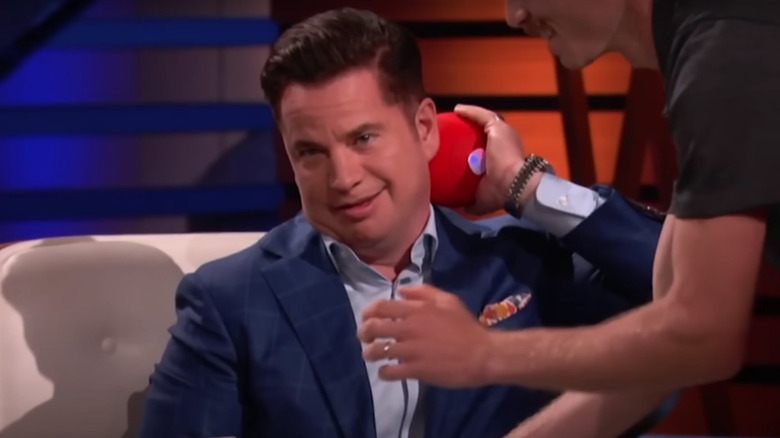Whatever Happened To MyoStorm After Shark Tank?
We may receive a commission on purchases made from links.
There are certain categories of retail products that are much harder to introduce innovative ideas for than others. One of these retail sectors is fitness and exercise equipment, which is oversaturated as it is. Hopeful entrepreneurs may see a long and expensive path when trying to get a new business off the ground in this field, and it may go nowhere. When it comes to presenting a new idea like that in front of the toothy panel on ABC's "Shark Tank," reeling in a deal seems as tough as winning the Iron Man Competition.
That's exactly what entrepreneur hopefuls Shaquille Walker, Jared Ward, and Jono DiPeri attempted to do when they jogged onto the stage on Season 11, Episode 5 of "Shark Tank." Their company, MyoStorm, created the Meteor Ball, a unique sports recovery tool that uses rolling, heat, and vibration to help athletes get back in the game.
The best aspect of the product is that one doesn't need to be an athlete to use it. The device can help anyone manage chronic pain and strengthen sore muscles at the gym or at home.
The three entrepreneurs asked the panel for $150,000 in exchange for 10% of their company. Despite the Sharks clearly being impressed with the Meteor Ball samples they were holding, the price it was selling at, $160, seemed high. After a debate between the panel, offers began to be dished out.
First, Mark Cuban offered $250,000 for 20% of the business; however, he immediately dropped out when the MyoStorm team wanted to hear other offers. In the end, they took a deal from Lori Greiner. Since then, some may wonder what happened after these Shark Tank entrepreneurs landed their deal.
MyoStorm is rolling ahead
When Shaquille Walker, Jared Ward, and Jono DiPeri presented their MyoStorm Meteor Ball to the moguls on "Shark Tank," they believed they were giving the panel an opportunity to invest in the most sophisticated product for pain management and athletic muscle rehabilitation. Lori Greiner bought into the product, literally, investing $150,000 for 5% of the company, with an additional $1 royalty/per unit. Although many initial deals like these never go further than the "Shark Tank" stage, MyoStorm beat the odds and continued to grow.
Despite a few of the Sharks believing the retail price was too high for a piece of equipment like the Meteor Ball, the owners of MyoStorm decided to keep it very close to what it was. The original product, which received initial funding from Kickstarter before being presented on "Shark Tank," increased their staff to 10 and saw profits reaching about $150,000 each month. The heads of the team then decided it was best to upgrade to more innovative models.
When checking out the MyoStorm website, customers can see that the new Meteor Ball 2.0 is available. This new and improved athletic recovery ball, along with MyoStorm accessories and equipment bundles, helped the company grow even more. Today, the company has an annual revenue of $2 million and growing. The products are not only available on their website, but also at Walmart and Amazon.

